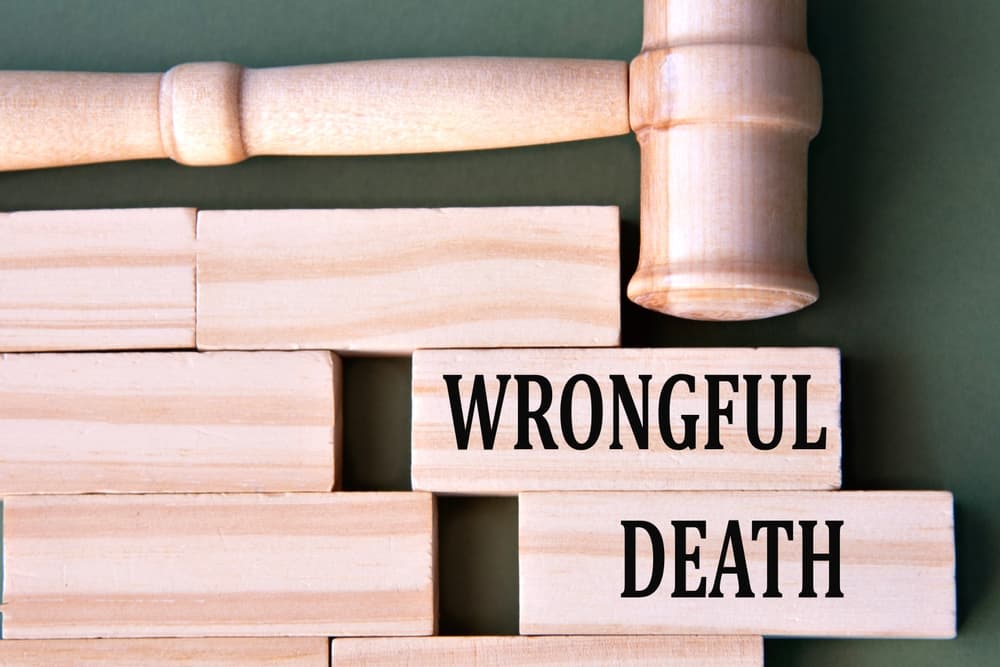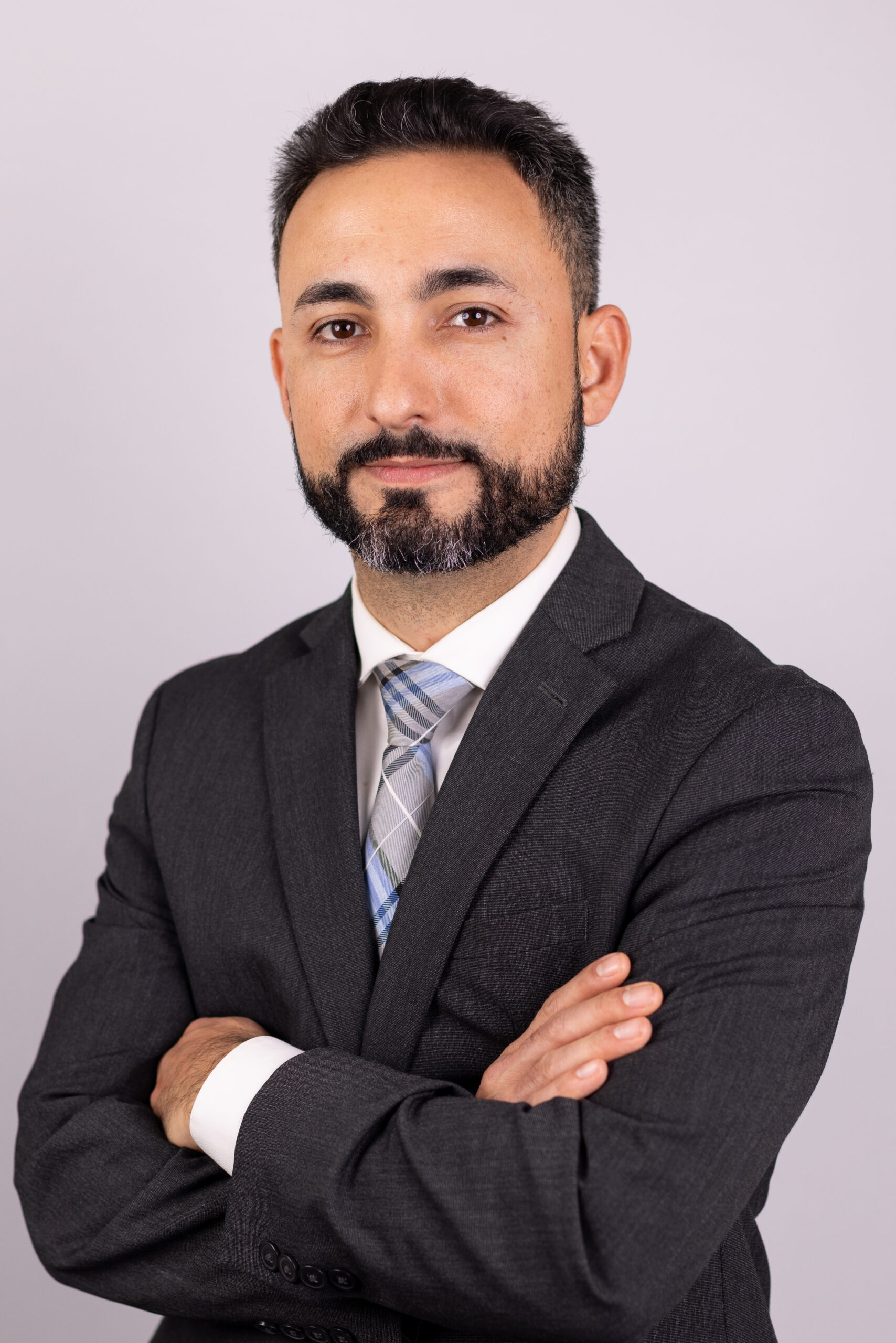Unfortunately, throughout your life, you will experience many hardships – losing a loved one is one of the most significant. A sudden, unexpected loss can leave you dealing with mental and emotional challenges, as well as financial difficulties. These issues tend to be much more burdensome when your loved one’s death is preventable.
If you’ve lost a loved one at the hands of another, you may have a valid legal claim. Discuss your situation with a skilled wrongful death attorney to gain helpful insight and advice as you navigate your journey toward justice.
What Is a “Wrongful Death” Under the Law?
A wrongful death is one caused by wrongful actions, including negligence, intentional actions, or criminal conduct. In most cases, a wrongful death could have been avoided had the responsible party not acted wrongfully or utilized requisite care based on the circumstances.
Depending on the cause of the death, the responsible party can face both civil and criminal repercussions. In a civil wrongful death case, the family of the deceased has the opportunity to hold the liable party accountable for their actions and seek compensatory damages. When a criminal act causes a death, the at-fault party may also be criminally charged and face several penalties, including fines and prison.
Situations involving wrongful death are never easy. A knowledgeable lawyer can assist with your case and determine the best action to obtain a favorable outcome.
Types of Accidents Resulting in Wrongful Deaths

Wrongful deaths can result for many reasons.
However, some of the more common causes of unanticipated, unjustified deaths include:
- Vehicular collisions, including car, truck, and motorcycle crashes
- Pedestrian accidents
- Bicycle accidents
- Premises liability accidents, including slips and falls and dog bites
- Use of defective or malfunctioning products
- Medical malpractice, such as failure to diagnose or medication errors
- Accidents in the workplace
- Intentional acts, including assault and robbery
Any of the above situations can cause severe, catastrophic injury to victims. Depending on the type of incident, the victim may pass away instantly or suffer for some time before succumbing to their injuries.
Who’s At Fault for a Wrongful Death?
Simply put, the party or entity that caused a person’s death would be at fault.
The at-fault party depends on the circumstances but can include:
- Car and truck drivers
- Drivers’ employers
- Governmental entities
- Landowners and occupiers
- Healthcare providers, including doctors, nurses, and pharmacists
- Maintenance and repair workers
- Product designers, manufacturers, and distributors
A lawyer can investigate your loved one’s death to determine how their death occurred. Once you understand what caused their untimely death, you’ll know who’s responsible.
Taking Legal Action Following a Wrongful Death
You can have a viable legal claim when you lose a loved one due to another’s wrongdoing. Filing a wrongful death lawsuit against the responsible party can aid in your pursuit of fair and well-deserved compensation.
Wrongful death cases fall under the area of personal injury or tort law. Personal injury law allows victims injured by others to seek financial recovery for their related expenses and losses. Unlike most personal injury cases, because the injured party has passed, the law allows their loved ones and financial dependents to benefit from lawsuit earnings.
As soon as possible, seek legal assistance from a wrongful death lawyer. A lawyer can file your claim and represent your best interests throughout your case.
The Wrongful Death Lawsuit Process
The lawsuit process can seem daunting and overwhelming, but knowing what to expect can help ease your concerns and feel more confident.
Once you hire a wrongful death attorney, your lawyer will investigate your loved one’s case, uncovering much-needed information, including the cause of death and evidence. After pre-suit steps are taken care of, your attorney can file your claim in court.

The opposing party is notified of the impending lawsuit. They have a certain number of days, usually 21 to 30, to file their response to your petition in court. After their response has been filed, the case can proceed.
The discovery phase of a lawsuit is one of the most important. During this process, parties and their attorneys can request and obtain pertinent evidence and information to help build their cases. Lawyers can utilize key legal tools, including requests for production, interrogatories, and depositions.
Discovery can take some time, especially if a case is more complex. The discovery process is usually the most time-consuming.
Upon completion of discovery, parties are better equipped to enter into settlement negotiations. During negotiations, parties work together to reach a beneficial agreement. If negotiations are successful and the case is settled, there is no need for a trial.
While many cases settle outside the courtroom, some end up in court. If your lawyer feels it’s best to try your case, you can feel secure knowing they will continue to represent your best interests fiercely.
Throughout your lawsuit, you can trust your wrongful death attorney to do what is best for you and your case. Your lawyer will work in your best interests, seeking the best possible case result.
Who Can Sue?
It’s worth noting that not just anyone can file a wrongful death lawsuit. Parties eligible to file these types of claims depend on state law.
In some states, certain individuals, such as spouses, children, and parents, are allowed to file a wrongful death lawsuit for compensation. On the other hand, in other states like Florida, the decedent’s personal representative must file a wrongful death claim. A personal representative handles a person’s estate after their passing.
The personal representative does not file the wrongful death claim for their own benefit, but on behalf of the family members. If they obtain a settlement or award, the proceeds will be divided between the eligible family, including the surviving spouse and children.
A personal representative is designated in the deceased individual’s last will and testament. If they died without a will, the probate court must appoint someone to fill this role. Then, that individual can take action to seek justice for wrongful death.
Knowing who can handle a wrongful death claim is crucial. A wrongful death lawyer can help understand your state’s laws and decide who should handle the case, whether it is a representative or family members themselves.
Damages Available for Wrongful Death Claims
The primary purpose of filing a wrongful death claim is to pursue compensation for the losses caused by your loved one’s passing, including economic and non-economic damages.
Economic damages compensate you for your tangible losses. They are usually easier to prove, as evidence is often more readily available. Non-economic damages represent your intangible damages. Because these are subjective, they can be more challenging to quantify.
Examples of damages you may be entitled to receive from your wrongful death claim include:
- Medical expenses your loved one incurred before passing away
- Funeral and burial expenses
- Your loved one’s lost earnings and benefits
- Loss of love, support, and companionship
- Pain and suffering
- Loss of consortium
Additionally, your case may qualify for punitive damages. Unlike compensatory damages, punitive damages serve to punish defendants for their particularly wrongful actions, including grossly negligent, malicious, or intentional behavior.
The circumstances of the case and state law dictate the types of damages you’d be entitled to seek and obtain. A wrongful death attorney can review your claim to determine what damages you can receive and aggressively pursue the compensation you deserve.
Determining the Value of a Wrongful Death Case
It can be challenging to imagine assigning a monetary value to your loved one’s life, but ensuring you get a full and fair financial recovery is necessary.

To figure out how much your wrongful death case is worth, your attorney must assess:
- The decedent’s age and health
- The cause of the decedent’s death
- The decedent’s earnings and benefits at the time of their death
- The decedent’s future earning potential
- The total cost of medical expenses before the decedent’s passing
- The mental and emotional impact on the decedent’s loved ones
Looking at insurance policy limits is critical if you’re seeking compensation from the responsible party’s insurance company. Additionally, some states have damage caps on non-economic or punitive damages.
Your wrongful death attorney can thoroughly investigate these critical details to determine the true value of your case. Knowing how much your case is worth can significantly help ensure you get the monetary recovery you need during a trying time.
Time Restrictions for Filing Wrongful Death Lawsuits
After losing a loved one, the last thing you’re likely thinking about is engaging in a legal battle. A loss’s toll on a person’s life requires some time to heal. Time is limited to take legal action against the at-fault party for compensation.
Every state imposes statutes of limitations on cases, including wrongful death claims. The statute of limitations places a time clock on a plaintiff’s ability to file their court claims. Depending on your state’s statute of limitations, you may only have one to three years after your loved one’s death. While this may seem like more than enough time, there are pre-lawsuit steps your lawyer may need to take before filing your claim, and you want to ensure you allow enough time.
Although you may still be able to file your lawsuit after the time has expired, you’re unlikely to find much success. Upon noticing the expiration of the statute of limitations, the opposing party won’t hesitate to bring this detail to the court’s attention, causing your case to be dismissed.
Failing to file your claim timely can result in forfeiting your right to compensation. Don’t miss your opportunity to obtain justice. Consult a qualified wrongful death attorney to begin working on your case immediately.
The Importance of Working with a Wrongful Death Attorney
It’s normal to feel apprehension about taking your case to an attorney. This apprehension often results in plaintiffs failing to seek proper legal assistance and handle their claims on their own. While you can handle your wrongful death case, it is truly in your best interest to work with an experienced lawyer.

Wrongful death cases can be particularly challenging to navigate, especially if you’re inexperienced in the legal field. Taking on your case alone and representing yourself can have negative outcomes. You only have one shot at justice, so thoroughly prepare and hire sufficient legal support.
A wrongful death lawyer uniquely understands these delicate cases, including the relevant laws and procedures. They can provide you with the care and guidance you need while fighting for your right to beneficial recovery.
Among the many tasks your wrongful death lawyer will take on, some of the most important include:
- Investigating your case
- Determining cause and liability
- Calculating your damages
- Collecting evidence
- Communicating with opposing parties and insurance companies
- Handling settlement negotiations
- Representing you at trial if needed
Wrongful death attorneys know the hardships that come from losing a loved one as a result of another’s wrongdoing. When you have a lawyer working for you, you’re allowed the time and space to properly grieve without the added stress of a legal case.
Additionally, an attorney will likely yield more favorable results for you and your family.
Following the Wrongful Death of a Loved One, Seek Legal Representation
The mere thought of a legal case can often be too much to bear right after losing a loved one, but as the saying goes, “You don’t have to see the whole staircase; just take the first step.” The first step is a consultation.
During your consultation, your personal injury lawyer will gather information, address your questions and concerns, and provide their initial thoughts and opinions. From there, your attorney can take over and begin working on your case.
Getting the legal help you need can give you peace of mind during a challenging time. When you’re ready and able, consult a local wrongful death attorney to discuss your case.

